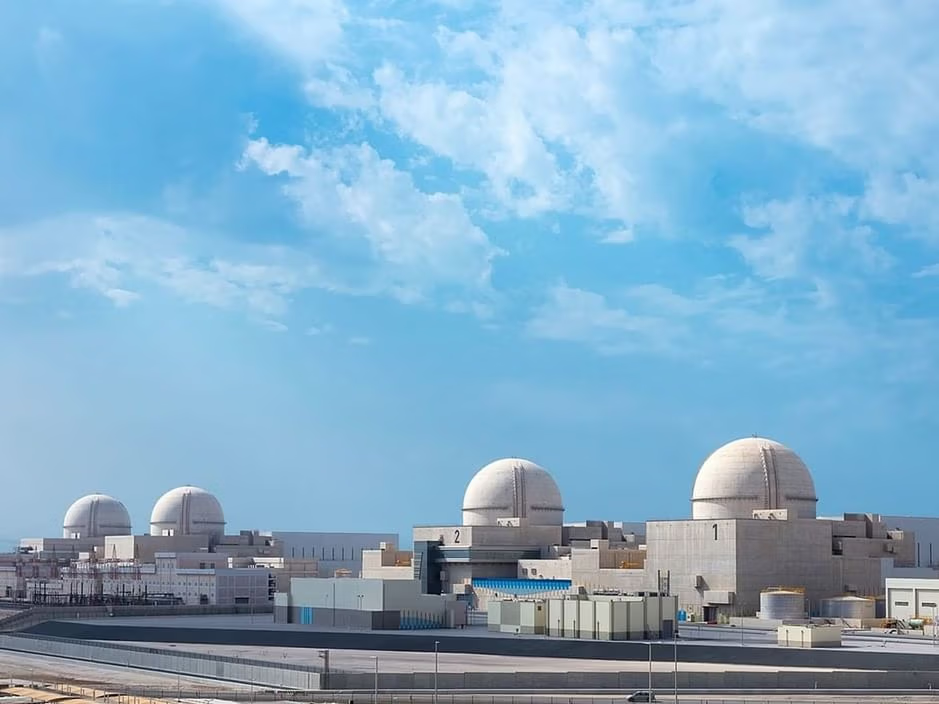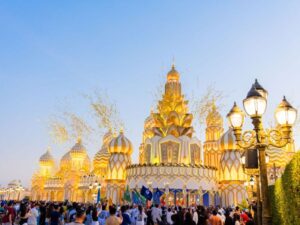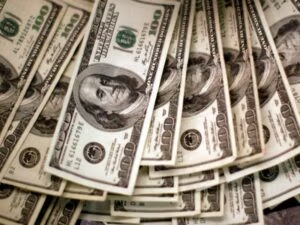The United Arab Emirates (UAE) continues to solidify its position as a global benchmark in the development of a peaceful nuclear energy programme, characterised by its commitment to the highest standards of safety, transparency, and international cooperation. This progress occurs at a time when the global community is increasingly seeking reliable, low-emission energy sources to advance climate neutrality.
From the outset, the UAE embraced a collaborative and open approach, establishing strong international partnerships, particularly with the Republic of Korea and the United States, to realise its nuclear energy ambitions.
Mohamed Al Hammadi, Managing Director and CEO of the Emirates Nuclear Energy Corporation (ENEC), underscored the global recognition of the UAE’s peaceful nuclear programme.
He said, “The country’s success lies in developing a global model for integrating nuclear power into a diverse and innovative energy portfolio.”
Al Hammadi attributed this achievement to the nation’s visionary leadership, a clear roadmap, and unwavering dedication to international standards.
“This achievement is rooted in the visionary leadership of the UAE, a clearly defined roadmap, and a firm commitment to the highest standards of safety and transparency, underpinned by strong international cooperation,” he noted in a statement to Emirates News Agency (WAM).
The UAE has been at the forefront of international collaboration within the nuclear sector. At COP28, held in the UAE, more than 30 countries pledged to triple global atomic capacity by 2050 to support climate goals. Nearly 120 companies and financial institutions committed to this shared objective.
Highlighting evolving demands in a rapidly advancing technological world, Al Hammadi remarked on the innovative UAE-U.S. cooperation model.
“It addresses the demands of the modern era and its rapid technological advancements, particularly in the fields of artificial intelligence and data centres,” he said.
He also emphasized the importance of clean and dependable energy sources in powering projects like Stargate UAE, a consortium-led initiative that positions Abu Dhabi as a global AI hub.
“Securing clean and reliable energy sources, such as nuclear power, is essential to support initiatives like the ‘Stargate UAE’ project,” he added.
ENEC, along with the Federal Authority for Nuclear Regulation (FANR), plays a pivotal role in the UAE’s nuclear strategy, advancing it through international technical and strategic partnerships. These partnerships have enabled the UAE to accelerate knowledge transfer, strengthen capabilities, and build specialised human capital.
The Barakah Nuclear Energy Plant serves as a testament to the successful collaboration between the UAE and Korea. This alliance has evolved to explore broader investment opportunities, including the deployment of Small Modular Reactors (SMRs). FANR and its Korean counterpart maintain close ties through joint inspections, training, and technological monitoring.
The UAE also enjoys robust strategic partnerships with the United States. Agreements with the U.S. Department of Energy’s Idaho National Laboratory focus on producing hydrogen, steam, and water from Barakah. Collaborations with TerraPower and General Atomics aim to enhance reactor technologies, while a new agreement with GE Vernova will explore international deployment of BWRX-300 SMR technology.
Additionally, the UAE is exploring new opportunities with China, covering nuclear facility operation, advanced reactor development, nuclear fuel supply, and cross-border investment.
FANR continues to enhance global nuclear safety and non-proliferation through regulatory agreements with international counterparts. This includes a significant partnership with Romania to develop an SMR project, supported by a $275 million investment from the UAE.
The UAE also champions regional cooperation. In a landmark initiative, it joined Saudi Arabia in launching their first bilateral nuclear regulatory partnership, building on an agreement reached in 2019. This includes shared expertise, development of the legal framework, and emergency preparedness.
The UAE-Egypt Memorandum of Understanding signed at COP28 further expands regional ties, providing a framework for peaceful nuclear energy cooperation and knowledge exchange.
Through visionary planning, strong governance, and global partnerships, the UAE continues to lead the way as a model for safe, innovative, and sustainable nuclear energy development.
–Input WAM





